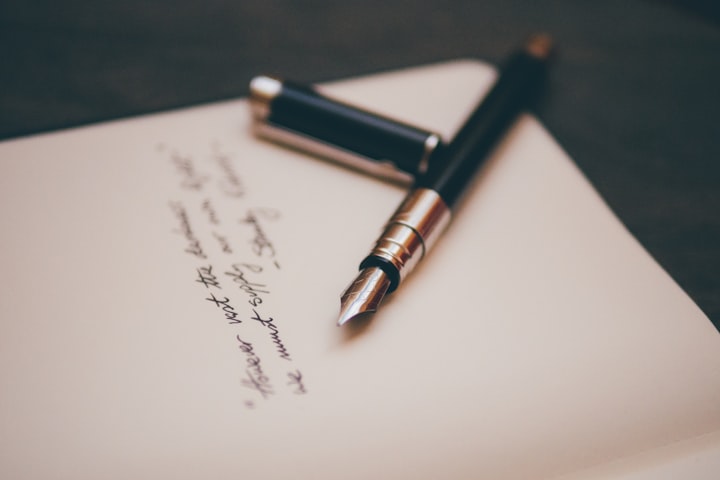How to Be a Good Poet
Writing poetry is more of a condition than a profession. It is a potpourri of emotions measured and put into words with the expectation that the readers will understand something of it.

Writing Poetry Is an Experience
Paul Engle, the poet and New York Times columnist, gave the perfect definition of poetry when he said.
“Poetry is ordinary language raised to the nth power. Poetry is boned with ideas, nerved and blooded with emotions, all held together by the delicate, tough skin of words.”
That said, poets are an odd, beautiful breed. Constantly observant and obsessed by details, we speak a language that can both transcend and tap into time and place.
Writing poetry is more of a condition than a profession. It is a potpourri of emotions measured and put into words with the expectation that the readers will understand something of it.
For the record, there are no rules. In fact, poets have a whole playground before them (life). There are probably about a million ways to write a poem and there are hundreds of poetic styles vying for attention.
But the one common thing is that all poems (most of them in fact) are beautified journal entries that trigger memories, emotions, and sentiments. Writing a poem means paring down your experience to just a few words or phrases. When you write a poem, the challenge is to capture a moment, a feeling or a fleeting thought.
Here are a few pointers that can help you be a good poet.
Focus on a Particular Moment
Poems work best if you focus on a moment that expresses an emotion or is a metaphor for an idea. Such moments occur every day. We just need to notice them.
For example, imagine the spring season is just starting and you see petals of cherry adorning the roadside. You can just capture this moment in the haiku poetic form like this:
From all directions,
winds bring petals of cherry.
finally, Spring comes.
Live in the moment. Be present. Capture these moments in words of poetry. The more details you use, the more vivid your poem will be. Sensory details help your readers to identify emotionally with your poem.
Besides the literary benefits, poetry also helps us savor the simple moments of life, calms us down during times of stress, and helps us to be more focused.
Describe Something or Someone
Specificity strengthens a poem, and it is hard to get more specific than throwing all your attention toward one thing or person.
For example, you might tell your friends what your boss is like. You might tell your sister what that cute guy you saw looks like. You may also describe the people you met at an event or gathering.
For instance, I had gone to a poetry reading where I met multiple personalities of poets, including some interesting ones I was able to capture in poetic form:
The Drunk Poet
Whiffs of liquor breath,
intoxicate my golden words.
No vodka, no poem.
The Emotional Performance Poet
Eyelashes on fire,
my poems become fiery balls,
mouthed incessantly.
Even outside of everyday conversations, it is very useful to know how to describe people. Reading or hearing a description of someone can give you a better idea of what they look like or act like and can be an inexhaustible source of poetic imagination.
Satirize the Ordinary
The funny thing about the word "ordinary" is that it requires that the majority of a populous with similar characteristics to be doing the same thing. I find this thought-provoking.
We may have similar external attributes — a partner, a job, a car, a home, bills, children, etc. — but what separates the ordinary from the extraordinary is how we dance with each of these details.
Honor the miraculousness of the ordinary. What we very badly need to remember is that the things right under our noses are extraordinary, fascinating, irreplaceable and profound.
For example, we all spend copious amounts of time in various forms of social media. We can very well equate them to the “modern sins” of this world:
Tinder.
Her bumtastic bod,
evokes passions across men.
Is it love or lust?
Yelp.
Don’t be a glutton.
Instead, be a connoisseur
of lip-smacking food.
Linkedin.
Corporate ladder;
Greedy people don’t climb steps.
They use connections.
Always remember, poetry is just rearranging familiar things in a unique way and perspective. The things you do every day are the best ingredients for poetry.
Let Your Work Be Open to Interpretation
Poetry is all about the reader’s experience.
You may have an idea in mind that you wish to convey, and they may have a similar experience to you that the poem reminds them of, or they may feel particularly affected by your poetry in the way that you desired.
Your reader may also react in a way you did not imagine — with a memory of something important to them or an alternate emotion, based on an image or a word that you have used. One of the most wonderful things about poetry is that it can be open to interpretation.
For example, the below poem talks about food but also goes beyond food in ways more than one.
I make spinach dip
with minimum ingredients.
All I require is
green spinach leaves, spices
and passion play in kitchen.
Your poem can be a world in which your readers can go and live themselves and seek out things that resonate for them. Do not restrict their reaction. Set them free.
Lastly, Do Not Listen to the Rules
There are not any fixed rules to writing poetry — that is perhaps what makes it such a liberating medium of expression.
People say a lot of things about poetry. It should rhyme. It should be in couplets. It should be confessional. It should be political. It should be about nature. It should be written in high language. It should be formatted a certain way. It should have titles. It should be Instagrammable and so on…
All this is bollocks...
Create the poetry you want to read. There are no rules, and if someone tells you there are, they are not poets at all. Good poets create rules, reinvent rules and delete those rules when they no longer conform to their emotions.
To sum up: a good poem translates and articulates your feeling in a way the reader can understand and feel with you. Just go on writing without worrying about rules. Suddenly, you will find your voice and sing joyfully.
As E.B White has aptly said.
“A poet dares be just so clear and no clearer… He unzips the veil from beauty, but does not remove it. A poet utterly clear is a trifle glaring.”
About the Creator
Peeping_Soul
I am an executive who likes spending time reading and writing about almost everything under the sun.I love writing within the cusp of relationships, history, and creativity where boundaries are blurred, and possibilities are immense.






Comments
There are no comments for this story
Be the first to respond and start the conversation.